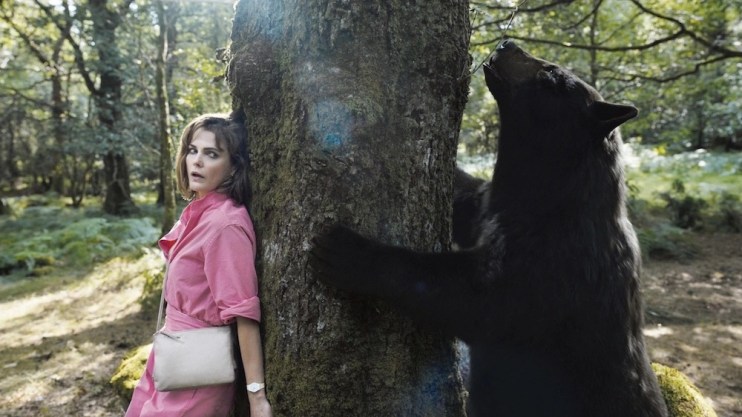Cocaine Bear, a drugged up warning for Netflix & co in the streaming wars

Two ambulance workers rush inside a house where furniture is all over the place, and the walls are stained with blood. One of them opens a door, only to be attacked by a giant brown bear whose face is covered in – we quickly figure – human blood. These are the first 20 seconds of the trailer of the upcoming movie Cocaine Bear. Watching it, you can’t help but think it can’t be real – that it must be one of these Twitter memes taken a bit too far. But Cocaine Bear is real and coming to our theatres in 2023.
The storyline is as absurd as it gets: a bear chows down on cocaine which fell from the sky, goes bonkers and starts terrifying everyone in a village tucked away in Tennessee. It’s a horror comedy: it’s meant to be funny, but there’s also a lot of blood. The movie is vaguely based on a real story – a drug smuggler in the ‘80s dropped $20m of cocaine from a plane over a forest in the state of Georgia, killing a bear who ate it all and died of overdose. It’s the kind of story your uncle would tell you at Christmas dinner after too many glasses of wine – but instead, director Elizabeth Banks has decided to turn it into a movie.
Cocaine Bear will be in British cinemas from February 24 – and for all we know, it might prove a blockbuster. For now though, it begs the question of why there are so many bad movies out there. Why would you pay to go and see something so unhinged?
Cocaine Bear – and its cheap humour – speak volumes about the film industry. The bottom line is that it is too easy to make a film, so there are too many of dubious quality. This is a problem both for Hollywood and for streaming. Netflix has been repeatedly accused of making tonnes of low-quality movies just for the sake of having new content on its platform. It is now trying to save face by investing in well-thought-out documentaries, but the feeling that there are a lot of simply awful films on the platform lingers.
The same goes for Amazon Prime or HBO. The result is that the audience is simply overwhelmed by the amount of choices available. The market for streaming is overcrowded, subscription costs are on the rise, and in some cases subscriber bases are shrinking as we firmly leave two years of lockdowns behind and people spend less and less time at home. It’s been a bad year for streaming services. Growth has slowed at Youtube and Netflix, with Disney’s streaming services surpassing the latter in number of viewers during summer.
The result of more competition in the streaming market is people increasingly sign up to multiple services. At Netflix, this has been followed with the advent of a “basic” subscription for £4.99, but with advertising. It’s almost as if it’s just regular television. Elsewhere, YouTube has done the opposite, with paid-for access to ad-free videos.
Streaming was framed as the new success story of the movie industry, but clearly, it is in flux. Interestingly, alongside the rise of streaming, the number of films being released in cinema has in fact been trending upwards for some time, counter to what you might imagine.
In 2019, there were 1.2 million tickets sold in the US. This number collapsed during the pandemic, but has ticked back to around 800,000 this year, so far. Pre-pandemic, 47 per cent of Brits went to the cinema a year, with action movies and superhero films dominating the most popular spot. Almost all of the top films of the last few years have been revivals or part of a series, like the Marvel movies.
Movies like James Bond and Spiderman have a wide audience, while horror is not for everyone. You might be a Jordan Peele fan when you can stream Get Out from your laptop’s small screen, but not everyone wants to be exposed to jump scares and gory scenes in the dark, in front of the big screen. The comedy – and novelty – of a bear high on cocaine is meant to make up for that. But by any stretch of the imagination, it is neither a movie with a pre-existing large fan base, nor a work of cinematic genius. And yet, its makers have justified a launch in theatres, rather than to a streaming service.
By the current economics of the film industry, it doesn’t make sense. But right now, with the streaming services vying for the top place, Cocaine Bear could be a symptom of a wider malaise, with movie execs reluctant to pick a horse (or any other drugged up mammal) by releasing it with just one platform.